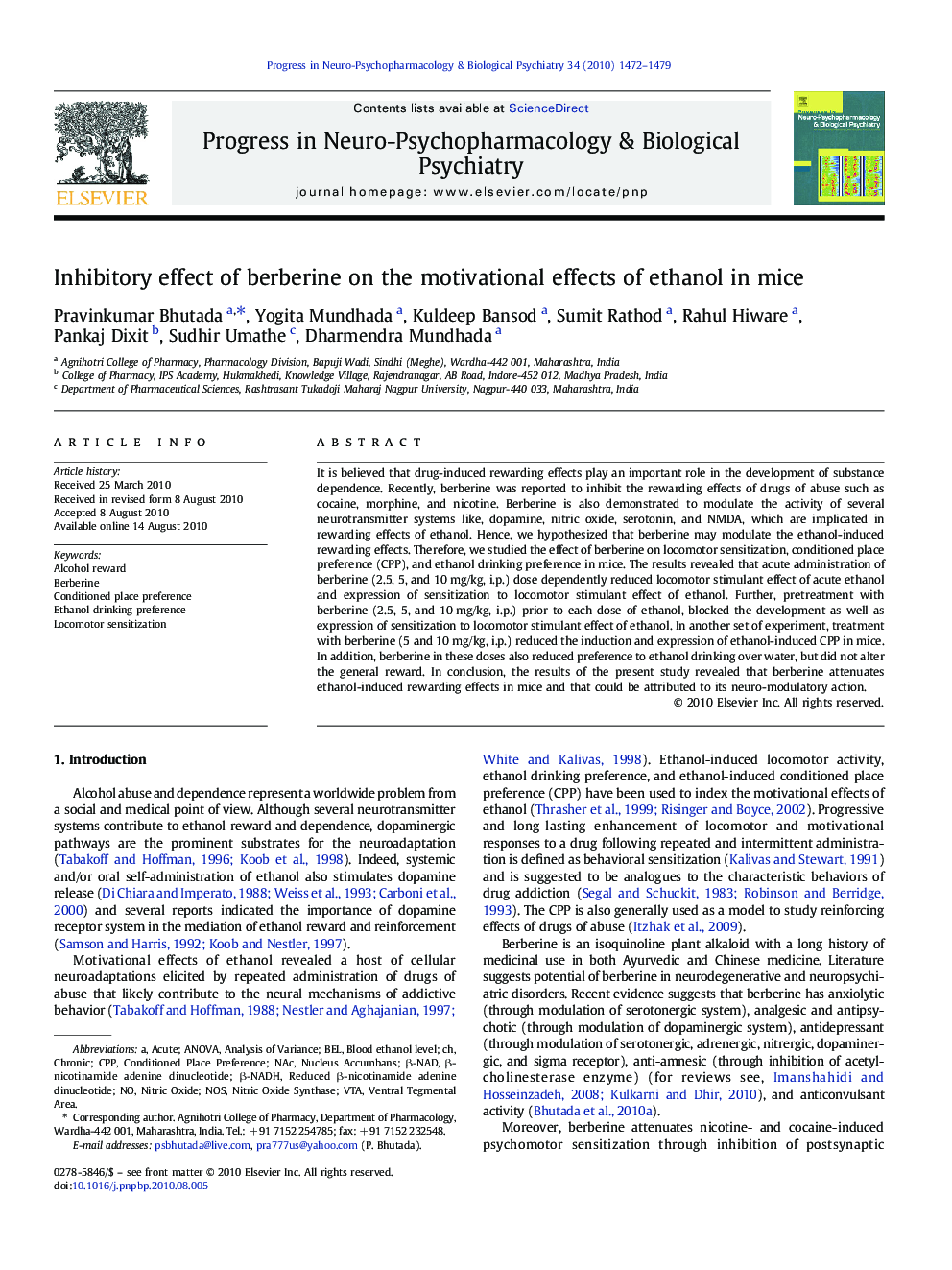| Article ID | Journal | Published Year | Pages | File Type |
|---|---|---|---|---|
| 2565148 | Progress in Neuro-Psychopharmacology and Biological Psychiatry | 2010 | 8 Pages |
It is believed that drug-induced rewarding effects play an important role in the development of substance dependence. Recently, berberine was reported to inhibit the rewarding effects of drugs of abuse such as cocaine, morphine, and nicotine. Berberine is also demonstrated to modulate the activity of several neurotransmitter systems like, dopamine, nitric oxide, serotonin, and NMDA, which are implicated in rewarding effects of ethanol. Hence, we hypothesized that berberine may modulate the ethanol-induced rewarding effects. Therefore, we studied the effect of berberine on locomotor sensitization, conditioned place preference (CPP), and ethanol drinking preference in mice. The results revealed that acute administration of berberine (2.5, 5, and 10 mg/kg, i.p.) dose dependently reduced locomotor stimulant effect of acute ethanol and expression of sensitization to locomotor stimulant effect of ethanol. Further, pretreatment with berberine (2.5, 5, and 10 mg/kg, i.p.) prior to each dose of ethanol, blocked the development as well as expression of sensitization to locomotor stimulant effect of ethanol. In another set of experiment, treatment with berberine (5 and 10 mg/kg, i.p.) reduced the induction and expression of ethanol-induced CPP in mice. In addition, berberine in these doses also reduced preference to ethanol drinking over water, but did not alter the general reward. In conclusion, the results of the present study revealed that berberine attenuates ethanol-induced rewarding effects in mice and that could be attributed to its neuro-modulatory action.
Research highlights►Berberine attenuated development and expression of sensitization to locomotor stimulant effect of ethanol.►Berberine attenuated ethanol-induced conditioned place preference.►Berberine also reduced preference to ethanol drinking over water, but did not alter the general reward.►Effects of berberine may be due to its modulatory activity at several neurotransmitter systems.
